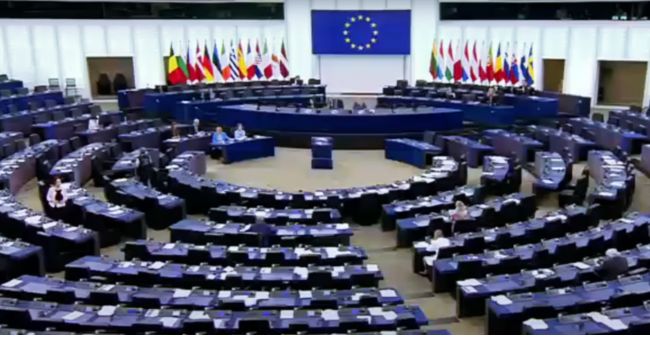The European Parliament does not have the right to comment on the internal matters of any other country.
India’s role in the world is becoming increasingly significant for peace, social progress, economic advancement, military capability, and environmental conservation. Recent evidence is the grand receptions and successful negotiations in the military and economic sectors during Prime Minister Narendra Modi’s visits to France and the United States. China and Pakistan may certainly feel uneasy due to India’s growing importance.
However, there are also attempts at defaming India by some leaders and organizations opposing India in the United States and Europe. Previously, when there was praise for India and Modi by the President and Congress of the United States, some leaders opposed to India tried to criticize in the name of human rights. Now, Prime Minister Modi has been accorded the highest honours in France and made the chief guest at the Bastille Day parade, and a military agreement has been reached. At this point, some leaders opposing India passed a resolution in the European Parliament related to the Manipur violence without understanding the facts.
In the European Parliament, allegations were made in a proposal framed in the name of human rights that fresh violence has happened in Manipur due to intolerance towards minority communities. Concern was expressed in this proposal without understanding the actual facts, claiming that divisive policies driven by politics are promoting Hindu majoritarianism in the region. The situation of violence in Manipur has indeed emerged due to intolerance towards minority communities. India has strongly objected to this. The Ministry of External Affairs has stated that this is interference in India’s internal affairs and cannot be tolerated. The reality is that the violence in Manipur has occurred due to resentment caused by a judicial decision between two tribal communities. Furthermore, the European Parliament does not have the right to comment on the internal matters of any other country.
Attention should be drawn to the stain on the hands of European leaders who spew venom against India, while recently there have been horrific acts of violence, racial atrocities, and allegations of bribery by some Members of the European Parliament, who accepted millions of euros/dollars to speak and behave under the guise of lobbying in Parliament. India respects European countries and organizations and has been cooperating with them since 1968.
The European Union, comprising 27 member countries, was not fulfilling its appropriate political role at the global level in line with its significant economic development. However, after the United Kingdom’s departure from the European Union, the Union has increased its activities in the world’s political arena and intends to play a more active role in the future. The European Union has never been an influential voice in global affairs, so the relationship with the European Union was not given as much importance in India’s strategic calculations.
The European Union has also remained indifferent to India because India did not give a green flag to the Free Trade Agreement and Investment Protection Agreement. Now, India has started cooperating with the European Union.
The European Union operates as an economic and political bloc. Nineteen of these countries use the Euro as their official currency, while the other nine members of the European Union (Bulgaria, Croatia, Czech Republic, Denmark, Hungary, Poland, Romania, Sweden, and the United Kingdom) do not use the Euro.
The European Commission is the executive body of the European Union responsible for legislative processes. It is accountable for proposing legislation, implementing decisions, maintaining European Union treaties, and managing the day-to-day operations of the European Union. The Commission operates as a cabinet government with the 27 member countries.One member from each member country is included in the Commission.
The proposals from these members are submitted by the member countries and receive final approval from the European Parliament. One member is proposed by the European Council and elected by the European Parliament for the position of President.
The appointment of the High Representative for Foreign Affairs and Security Policy for the Union’s foreign and security policy is decided by voting in the European Council, and the consent of the President of the European Council is necessary for this decision. The High Representative is responsible for implementing the Union’s foreign affairs, security, and defence policies.
The current situation regarding the European Parliament, which is preaching to India about alleged intolerance towards minority communities, is such that some countries are already opposing Hungary’s turn for the presidency next year by exerting undue influence.
In organizations, each country takes turns holding the presidency, as is the case with the G-20 group. However, Hungary is being unjustly targeted over the Russia-Ukraine issue. Such organizations that engage in this kind of pulling and pushing have no right to point fingers at India. They should focus on economic relations and mutual benefits. India is the largest partner in economic trade.
The writer is editorial director of ITV Network—India News and Dainik Aaj Samaj.

